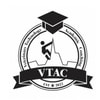Podcast
Questions and Answers
What does the term 'cholecyst' relate to?
What does the term 'cholecyst' relate to?
Which of the following suffixes indicates a condition in medical terminology?
Which of the following suffixes indicates a condition in medical terminology?
What is the role of an onychologist?
What is the role of an onychologist?
Which of the following medical terms refers to a type of inflammation of the gallbladder?
Which of the following medical terms refers to a type of inflammation of the gallbladder?
Signup and view all the answers
Which term correctly reflects the meaning of 'my/o'?
Which term correctly reflects the meaning of 'my/o'?
Signup and view all the answers
What condition was diagnosed in a patient with inflammation of the digestive tract and colon?
What condition was diagnosed in a patient with inflammation of the digestive tract and colon?
Signup and view all the answers
What skin condition did Emily receive a diagnosis for after experiencing severe itching?
What skin condition did Emily receive a diagnosis for after experiencing severe itching?
Signup and view all the answers
Which of the following issues did Ahmed face after fracturing his leg?
Which of the following issues did Ahmed face after fracturing his leg?
Signup and view all the answers
What diagnosis was made for the man experiencing difficulty in breathing and thick, clingy mucus?
What diagnosis was made for the man experiencing difficulty in breathing and thick, clingy mucus?
Signup and view all the answers
What diagnosis did the woman consulting for blood in her urine and painful urination receive?
What diagnosis did the woman consulting for blood in her urine and painful urination receive?
Signup and view all the answers
Study Notes
Lecture Objectives
- Define medical terminology
- Recognize different body systems
- Identify new medical terms
Body Systems
- The body systems are composed of various organs organized to perform specific major functions
- List of body systems: Cardiovascular, Integumentary, Musculoskeletal, Nervous, Respiratory, Gastrointestinal, Reproductive, Reticuloendothelial, Urinary, Endocrine
Respiratory System
- The respiratory system is responsible for gas exchange between the body and the air
- Components of the respiratory system:
- Nose (Rhin-)
- Throat (pharynx)
- Voice box (larynx)
- Windpipe (trachea)
- Large airways (bronchi)
- Small airways (bronchioles)
- Lungs (pulmon-, pneum-)
Digestive System
- Digestive system also known as the gastrointestinal tract, digestive tract, or the alimentary canal
- Main components:
- Mouth (stoma-, or-)
- Esophagus
- Stomach (gastr-)
- Small intestine (enteron-)
- Large intestine (colon)
- Rectum
- Anus
- Accessory organs (e.g., gallbladder (Cholecyst))
Cholecystitis
- Cholecystitis: A swelling and irritation of the gallbladder
- Cholecystectomy: Removal of the gallbladder (surgery)
- Gallbladder: Pear-shaped organ located below the liver; stores bile
Accessory Digestive Organs
- The parts that aid in the process of digestion
- Include: Salivary glands, liver, gallbladder and pancreas
Integumentary System
- The largest organ system, acting as a barrier between the external and internal environment
- Contains epidermis (outer layer), dermis (middle layer), hypodermis (inner layer), hair, nails, and associated glands (sweat, sebaceous)
Skin (Derm-, Cut-)
- Component of the integumentary system, includes:
- Dermatitis, a skin inflammation
- Cutaneous, relating to skin
- Hair (Trich-), examples: Trichotillomania, hair-pulling disorder
- Nails (onych-), examples: Onychocryptosis, ingrown nails
- Skin glands (examples: eccrine and apocrine glands), sweat
- Involved in secretion (krinein), meaning to secrete.
Trichotillomania
- Condition from the Greek tricho- ("hair") and tillein ("to pull"), and mania (meaning "to be mad")
- Disorder characterized by compulsive hair pulling
Onychocryptosis
- Ingrown nail
- Condition from Greek Onych- (nail) and kryptos (hidden)
- Common painful nail disease
Musculoskeletal System
- The locomotor system that allows movement and stability, composed of bones, muscles, cartilage tendons, joints, and ligaments
- Locomotor: Action or power of movement, from Latin loco- (from a place) and -motor which is rooted in Latin movere (to move)
- Components: bones (e.g., osteomalacia), muscles (e.g., myalgia), joints (e.g., arthritis), Cartilage (e.g. chondroblasts), Tendons (Latin word tendere means to stretch), Ligaments (Medieval Latin ligamentum from Latin band, tie from ligare)
Reticuloendothelial System
- Part of the immune system comprising phagocytic cells located in reticular connective tissue within the spleen, liver, lungs, bone marrow, and lymph nodes
- Reticulum: (Latin) Network
- Phagein: (Greek) to eat
- Myel: (Greek) marrow
Urinary Systems
- The renal system, responsible for filtering blood and creating urine (waste product)
- Consists of kidneys (nephr-, ren-), ureters, urinary bladder (vesic- from the Latin, a bladder, or cyst), urethra
- Urethr- comes from the Greek ouréthra, from the verb oureîn ("to urinate")
Combining Forms
- Understanding medical terms and their abbreviations is important.
Case Studies
- Focus on defining the medical complaints and diseases presented in case studies.
Studying That Suits You
Use AI to generate personalized quizzes and flashcards to suit your learning preferences.
Related Documents
Description
This quiz covers essential medical terminology related to various body systems. You will learn to recognize and identify key components of the respiratory and digestive systems, among others. This foundational knowledge is crucial for understanding how different organs work together in human anatomy.





